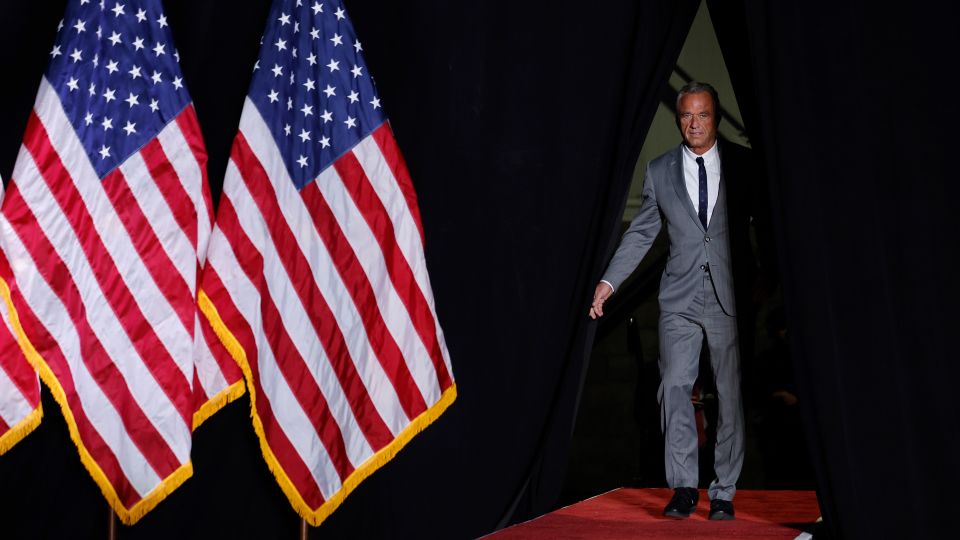This week, President Donald Trump called Operation Warp Speed, a public-private federal program that helped speed up the development and distribution of mRNA Covid-19 vaccines in record time “one of the most incredible things ever done in this country.” It was just a day after US Health and Human Services Secretary Robert F. Kennedy Jr. announced the federal government was canceling a half-billion dollars in investments into the same technology, saying no new mRNA projects will be initiated under the Biomedical Advanced Research and Development Authority.
Vaccine and preparedness experts said the decision could be disastrous for the United States, rendering another Operation Warp Speed impossible in case of threat from disease or bioweapons.
Kennedy, who has a long history of spreading vaccine misinformation, incorrectly suggested in his announcement that mRNA vaccine technology is ineffective, unsafe and unethical — comments that experts worry will put a chill on development even beyond the projects the government cut.
In a statement about the cancellation, Kennedy said the decision was based on a review of science and expert opinions.
“Let me be absolutely clear: HHS supports safe, effective vaccines for every American who wants them,” Kennedy said in this week’s announcement. “That’s why we’re moving beyond the limitations of mRNA and investing in better solutions.”
Kennedy said funding will be shifted “toward safer, broader vaccine platforms that remain effective even as viruses mutate,” such as whole virus vaccines, which use a weakened or deactivated version of a virus to trigger immunity. China developed a whole virus Covid-19 vaccine, but studies showed it wasn’t nearly as effective as the mRNA vaccines.
“I wonder why we want to try and go back to the way it was in the 1940s when we had vaccines, but it took a really long time to make them,” Dr. Cynthia Leifer, a professor of immunology at Cornell University said.
She equates the abandonment of mRNA research at this point to partially paying for a kitchen remodel and stopping to save money after the walls have been demolished.
“You’d be out your money and you don’t have a kitchen,” Leifer said.
The mRNA vaccine platform is uniquely suited to protect a country during a pandemic, said Dr. Jennifer Nuzzo, an epidemiologist and director of the Pandemic Center at the Brown University School of Public Health. Not knowing what will cause the next pandemic, she said, “mRNA vaccines offer real flexibility that other vaccine approaches don’t.”
For a flu vaccine, for example, makers use eggs to grow the virus. It’s a complicated process that may require several months to make enough, Nuzzo said. But mRNA vaccines can be developed much faster, sometimes even in days, and don’t require time to grow virus cultures.
When making an mRNA vaccine, scientists take messenger RNA, a single strand of the genetic code, that can teach cells how “read” and make a protein that triggers an immune response.
Dr. Michael Osterholm, a University of Minnesota epidemiologist, said the decision to “wind down” the government’s investment in mRNA vaccines is one of the worst public health decisions in decades, particularly for pandemic preparedness.
Osterholm, who is the founding director of the Center for Infectious Disease Research and Policy and author of the forthcoming book “The Big One: How We Must Prepare for Future Deadly Pandemics,” said vaccines are a “very, very small part of the pharmaceutical industry’s portfolio” since there’s not a lot of profit in vaccines. It’s government money that drives companies to make them.
Some mRNA projects are funded through other parts of the government, but Kennedy’s announcement may undermine mRNA vaccines in general.
“The constant undercutting of support for vaccines is really a challenge. So the damage was twofold,” Osterholm said.
“If we had another pandemic today, we would have to watch large parts of the world not get vaccinated for several years and based on what’s just happened, the United States would probably be at the end of the line, not the head of the line like it was in Covid.”
Nuzzo said it’s possible another pandemic may not happen during Trump’s term, but the decision leaves the US vulnerable in another way: Retreat from investment in mRNA vaccines may even be seen as an opening for an attack.
“Defense posturing and defense preparation are the best form of deterrence for a biological attack,” she said.“It sends a bad signal to our adversaries about our commitments to protecting ourselves and our vulnerabilities to attack, let alone it stifles medical innovation.”
Leaders in the Trump administration have pushed to bring drug manufacturing to the United States but experts say the choice to stop investing in mRNA vaccines will do the opposite.
Dr. Katalin Karikó, who shared the Nobel prize in 2023 for her pioneering work on the mRNA vaccines, told CNN this week that she moved to the US from Hungary because America offered opportunities to develop innovative science. US scientists in the same position today will not see the same opportunities, she said, and they’ll go where there’s investment in their work.
“It is really the next generation that will suffer the most,” Karikó told CNN, Wednesday. “When we have the next pandemic other countries will have to help us out.”
CNNI’s Christina MacFarlane and CNN’s Betsy Klein contributed to this report
For more CNN news and newsletters create an account at CNN.com

